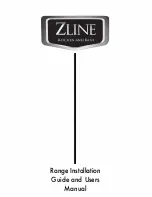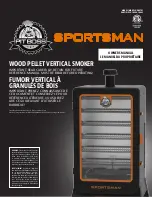
11
Do not
Do not
Do not
Do not
Do not leave utensils partly covering the heated
areas. Always ensure that they are placed
centrally over the heated areas and have the
same diameter as the heating area used.
Do
Always
Always
Always
Always
Always ensure that the bottom of the pan is both
clean and dry. Dirt or moisture between the
pan and the hob can cause pitting of the
surface of the glass.
We do not recommend the use of utensils with a
base diameter greater than 25cm (l0ins).
Pressure cookers or other large pans should be
used on the front cooking areas.
Always
Always
Always
Always
Always ensure that saucepan handles are positioned
safely.
Always
Always
Always
Always
Always take extra care when cooking foods with a
high sugar content eg. jam, as spillage will
cause damage to the surface of the glass.
Always
Always
Always
Always
Always clean spills immediately (see Care and
Cleaning).
IMPORTANT
IMPORTANT
IMPORTANT
IMPORTANT
IMPORTANT - As with any cooking appliance
there could be some fire risk attached to the heating
of oil, particularly for deep fat frying, cooking
utensils containing oil must not be left
must not be left
must not be left
must not be left
must not be left
unattended
unattended
unattended
unattended
unattended (e.g. to answer the telephone) on or in
close proximity to the patterned cooking areas.
1. Use a deep pan, large enough to completely
cover the appropriate heating area.
2. Never fill the pan more than one-third full with fat
or oil.
3. Never leave oil or fat unattended during the
heating or cooking period.
4. Do not try to fry too much food at a time,
especially frozen food. This only lowers the
temperature of the oil or fat too much, resulting
in greasy food.
5. Always dry food thoroughly before frying, and
lower it slowly into the hot oil or fat. Frozen
foods, in particular, will cause frothing and
spitting if added too quickly.
6. Never heat fat, or fry, with a lid on the pan.
7. Keep the outside of the pan clean and free from
streaks of oil or fat.
8. Never allow excessive splashing of oil onto the
hob.
Safety requirements for deep fat frying
In the unfortunate event of a chip pan fire:
1. Switch Off
Off
Off
Off
Off the electricity supply.
NEVER
NEVER
NEVER
NEVER
NEVER attempt to move the pan - burns and
injuries are caused almost invariably by picking
up the burning pan and rushing outside with it.
2. Smother flames with a fire blanket or damp cloth.
NEVER
NEVER
NEVER
NEVER
NEVER use a fire extinguisher to put out a pan
fire, as the force of the extinguisher is likely to
tip the pan over.
NEVER
NEVER
NEVER
NEVER
NEVER use water to extinguish oil or fat fires.
When smothering the flames DO ENSURE that
you FACE and ARMS are WELL PROTECTED
from the flames to save you from becoming hurt.
3. After the fire has been extinguished LEAVE THE
PAN TO COOL FOR AT LEAST 60 MINUTES
BEFORE MOVING IT.
4. If you fail to put the fire out, call the fire brigade
immediately.
Set. Hilite Burner
0
Off
1
To melt butter and chocolate.
2
To heat liquids.
3
4
For creams and sauces.
5
6
For cooking at the boiling point.
7
8
For roasts.
9
10
For boiling large pieces of meat.
11
12
For frying.
Setting
Radiant Plate
0
Off
1
Cooking vegetables, fish
2
Cooking potatoes (using steam) soups,
chickpeas, beans.
3
Continuing the cooking of large quantities of
food, minestrone
4
For roasting (average)
5
For roasting (above average)
6
For browning and reaching a boil in a short
time.
EN
EN










































